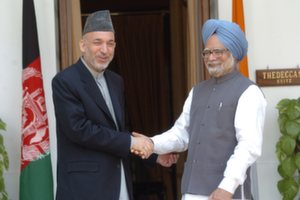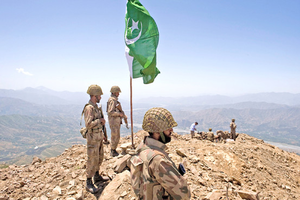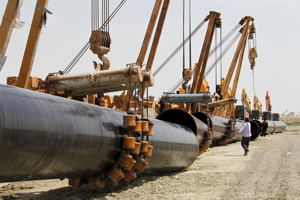Pakistan Concerned Over Afghanistan-India Relationship
by Naveed Ahmad (06/12/2013 issue of the CACI Analyst)
Afghanistan’s President Hamid Karzai is a shrewd politician, even more so as his term in office nears completion and uncertainty prevails. After a spate of words with Pakistan following a border skirmish, he left for India to seek military assistance against aggressive neighboring troops. For a change, Islamabad kept its cool and welcomed China’s Prime Minister Li Keqiang, who was also flying in after a “handshake across the Himalayas” in New Delhi. As for Karzai, it was not his first flight to India for military hardware or training. However, his action is largely seen as aimed to pressure Pakistan’s newly elected leaders prior to the exit of NATO forces in 2014.

Post-Election Developments: Is This Pakistan's Spring?
by Rizwan Zeb (06/12/2013 issue of the CACI Analyst)
For the first time in the country’s history, a smooth democratic transition has taken place in Pakistan. Pakistan is facing a number of domestic, regional and international challenges which will have serious implications for the future of the country. However, whether this is the beginning of a Pakistani spring or not will mostly depend on how effectively the central government and the newly elected opposition government in Khyber Pakhtunkwa will conduct business in the days ahead.

CACI Analyst, May 01, 2013
Pakistan's War On Terror: Up To And Beyond 2014
by Rizwan Zeb (05/01/2013 issue of the CACI Analyst)
While Pakistan continues to be a frontline state in the global war on terror, it is simultaneously fighting domestic terrorism in a war that will seemingly continue well beyond 2014. In recent months, terror attacks targeting the Shia Hazara minority in Baluchistan indicate a transformation of the terror problem in Pakistan. The Tehrik-i-Taliban Pakistan (TTP) and Lashkar-e-Jhangvi present two different sides of Pakistan’s terrorism problem, however, the two organizations have increasingly converged operationally to the extent that Pakistan cannot eliminate one without simultaneously confronting the other.

Pakistan's Pipeline Options: Turkmenistan Versus Iran
by Naveed Ahmad (03/20/2013 issue of the CACi Analyst)
Facing depleting petro-chemical reserves and soaring demands for energy, Pakistan has tough choices to make. It can either risk punitive action by opting for a steady supply of Iranian gas or rely on the more vulnerable but U.S.-backed 1,700 kilometer Turkmenistan-Afghanistan-Pakistan pipeline. Political instability and a lack of a long-term vision over the past two decades have impeded the evolution of both pipeline options, as well as inland and offshore exploration. With a modest forecast of an economic growth rate of 5.5 percent, Pakistan’s energy demand in 2030 may soar to 361.31 Million Tons of Oil Equivalent (MTOE), causing a deficit of 141 MTOE. Hence, Pakistan is increasingly facing an energy emergency.










 Book S. Frederick Starr and Svante E. Cornell,
Book S. Frederick Starr and Svante E. Cornell,